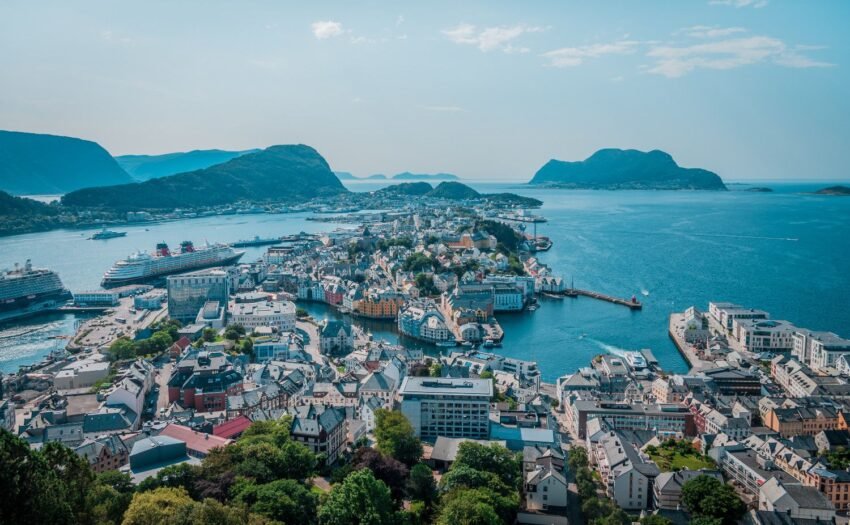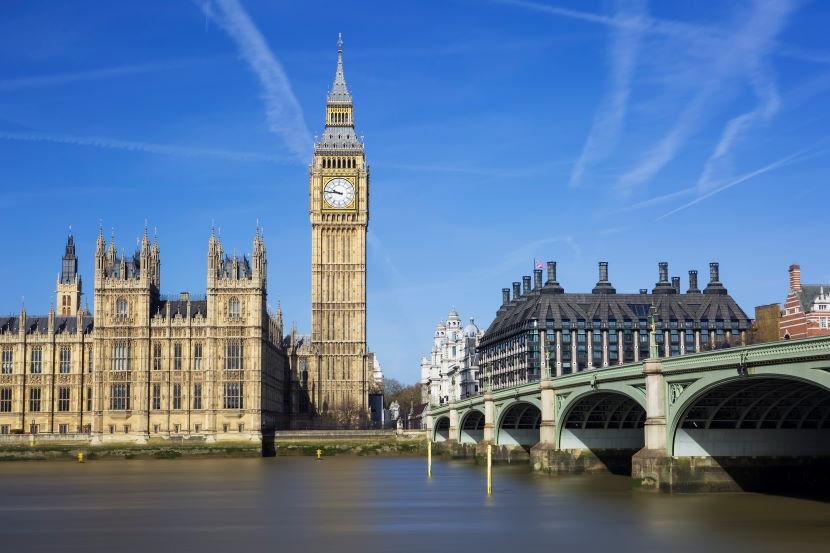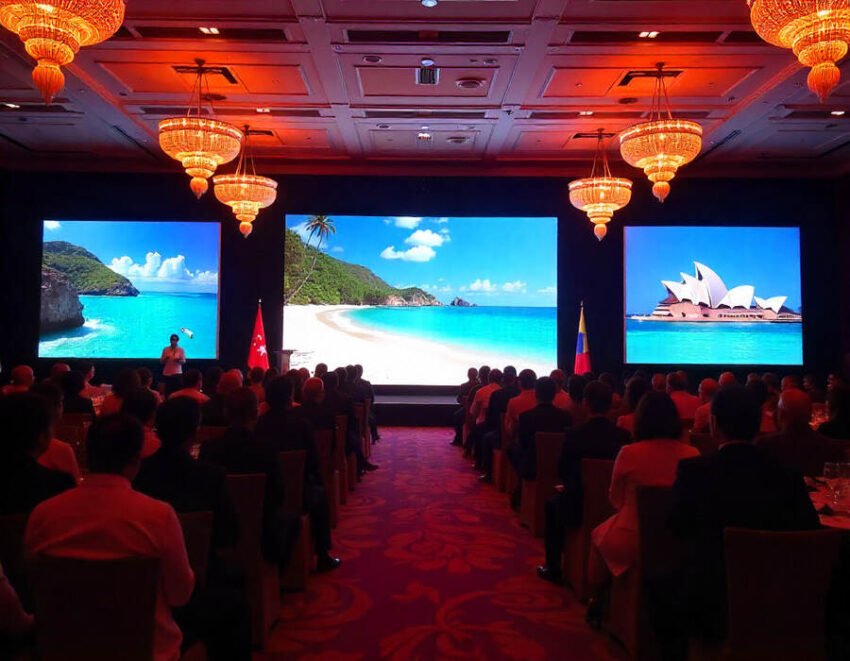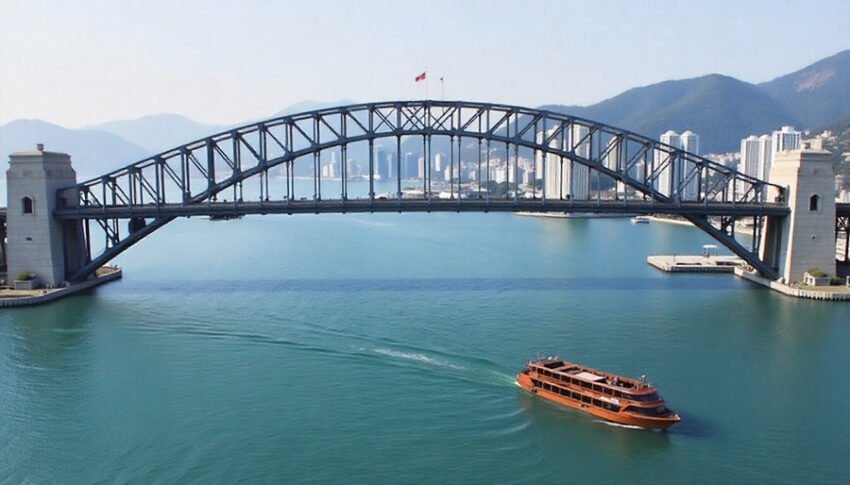Published on
October 13, 2025

A new kind of tourism that combines travel, culture, and music into one experience is emerging throughout Asia. As local and international performers draw fans from all over the world, concert tourism—once a niche market—is now being welcomed throughout the region. A historic collaboration between Live Nation Asia, a world leader in live entertainment, and Trip.com Group, one of Asia’s biggest travel websites, is spearheading this movement.
Mainland China, South Korea, Thailand, Hong Kong, and Singapore are the main markets where this multi-year partnership is being implemented. Through the partnership, tourists can use Trip.com’s platform to plan full concert-focused vacations that include event tickets, lodging, flights, and local experiences. By making its first foray into the live entertainment market, Trip.com is indicating that the lines separating travel, music, and hospitality are blurring and that a new era of destination experiences is dawning.
Music as the New Travel Magnet
Live music is being recognised as a growing force in tourism. Fans are travelling further than ever to see their favourite artists, creating a wave of “concert tourism” across Asia. According to Trip.com’s Momentum consumer survey, about two-thirds of travellers in the Asia-Pacific region say they are willing to travel internationally for concerts. Younger generations, especially Millennials and Gen Z, lead this trend.
In Singapore, hotel bookings rose sharply during Lady Gaga’s exclusive show, and in Hong Kong, more than half of concertgoers extended their stays to enjoy the city. These patterns are being noticed by regional tourism authorities, who see concerts as a way to drive both longer stays and higher local spending.
Asian cities like Seoul, Bangkok, and Singapore are fast becoming major concert destinations, often hosting global tours that draw fans from nearby countries. These cities are also strengthening their cultural appeal through government-backed tourism initiatives that promote music and live entertainment as key economic drivers. According to recent reports from tourism boards across the region, post-pandemic recovery has been led by events and entertainment travel, highlighting how live shows can energise local economies.
The Partnership’s Model for Concert Travel
Under this partnership, integrated packages are being introduced to make concert trips more convenient. Fans booking through Trip.com can access presale concert tickets along with hotel and transport options, creating a one-stop solution for event travel.
The first rollout centred on K-pop sensation TWICE’s world tour in Hong Kong, where Trip.com served as the official travel partner. Fans received priority booking options, exclusive presale access, and discounted hotel packages bundled with local attractions. Similar travel bundles are planned for other major artists, including BLACKPINK’s upcoming world tour stops in Singapore and Hong Kong.
Each package is being designed to offer more than just the show. Attractions such as Hong Kong Disneyland, Rainforest Wild ASIA, and city sightseeing tours are being added to give travellers a richer experience. The idea is to make every concert an opportunity to explore a new destination, blending culture, entertainment, and leisure in one trip.
Benefits for Local Economies
The economic impact of concert-driven tourism is significant. When large events take place, cities experience a sharp increase in spending on hotels, food, retail, and transport. For example, during major tours, visitor spending has been reported to rise by as much as 30% in key cities. Local businesses, including small hotels, cafes, and tour operators, also benefit from this influx.
Beyond short-term gains, concert tourism helps cities strengthen their brand identity. Hosting international concerts positions destinations as global cultural centres, drawing return visitors even after the event. Governments and local tourism boards in Asia are paying attention to this trend. Programs in Thailand, Singapore, and South Korea now focus on developing music-related experiences and event infrastructure to attract fans year-round.
Aligning with Tourism Goals
This partnership aligns closely with broader national tourism goals. Singapore’s tourism board, for example, has emphasised “experience-based travel” as a priority, and South Korea has invested in promoting K-pop tourism through dedicated music festivals. Hong Kong’s government has also increased support for large-scale cultural events to drive inbound tourism recovery.
In China, live entertainment is being viewed as a key sector for post-pandemic tourism growth. With domestic and regional travel rebounding, concert-related packages are expected to capture a large share of the leisure travel market. As more international artists include Asian stops on their tours, the potential for sustained growth in this segment looks strong.
A Shift Toward Immersive Travel
Concert travel represents a deeper trend in how travellers value experiences. Tourists are no longer satisfied with standard itineraries; they are seeking moments that connect them emotionally to a destination. The rise of music-led travel reflects this shift, offering fans the chance to combine passion with exploration.
Through this partnership, immersive travel is being made more accessible. Fans can attend a concert, explore nearby attractions, and enjoy local food and culture, all planned within a single platform. This approach not only enhances convenience but also helps promote regional integration by encouraging movement across borders.
The Road Ahead for Concert Tourism
As the concept expands, new possibilities are emerging. Future developments may include multi-city music packages, festival-themed tours, and exclusive backstage experiences for travellers. Local tourism boards are expected to collaborate more closely with entertainment companies and travel platforms to create sustainable models that balance economic growth with cultural preservation.
Environmental considerations are also likely to gain importance. With more travel linked to entertainment, efforts toward carbon offsetting and responsible tourism will be key. Partnerships with local communities will ensure that the benefits of concert tourism extend beyond the main event.
Conclusion
In Asia, concert travel is changing the definition of tourism. The collaboration between Trip.com and Live Nation is establishing a new standard for the area, where travel is now about experiencing a combination of sound, culture, and location rather than merely seeing sights.
Fans are being encouraged to discover places in new ways as Asian cities continue to make investments in music and events. Every show turns into a trip worth taking, and every concert into more than just a performance.








